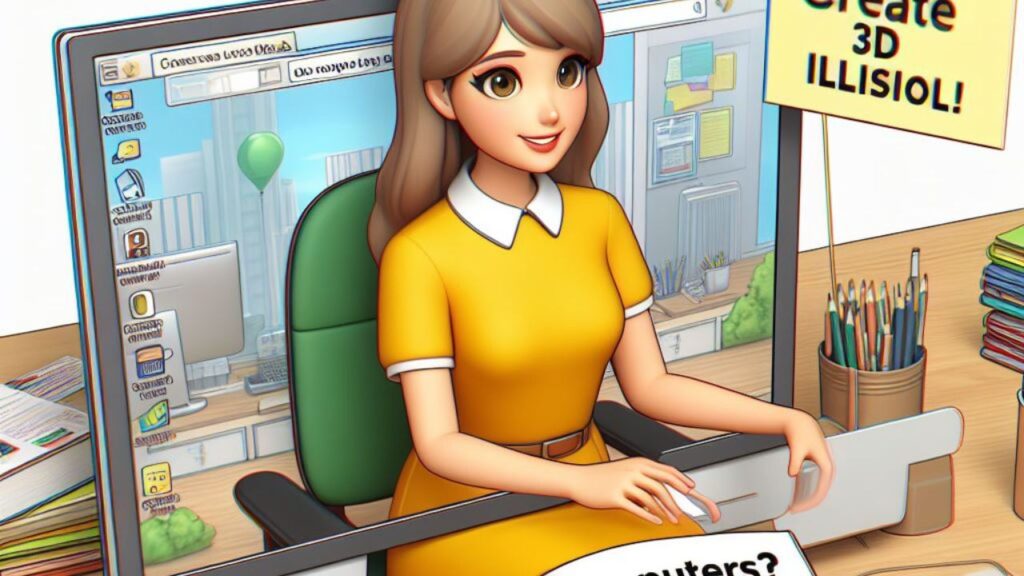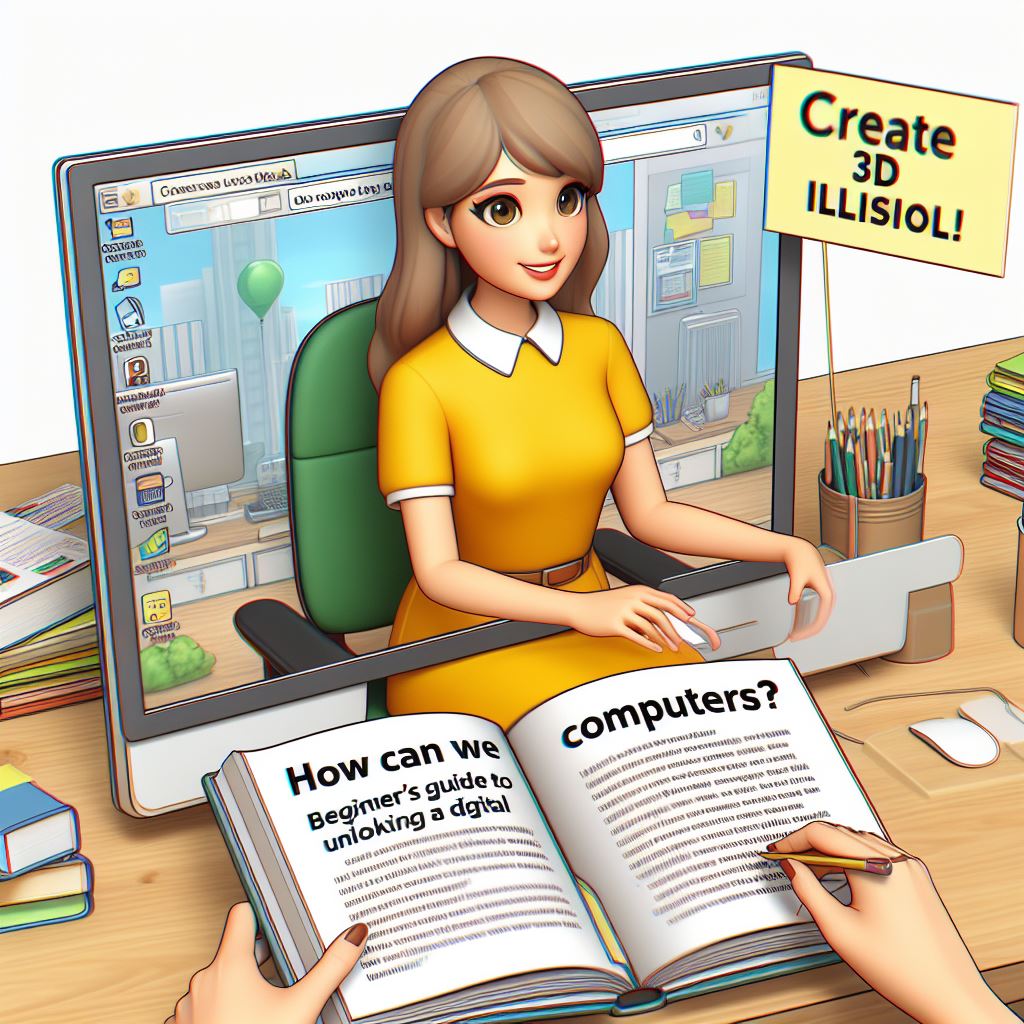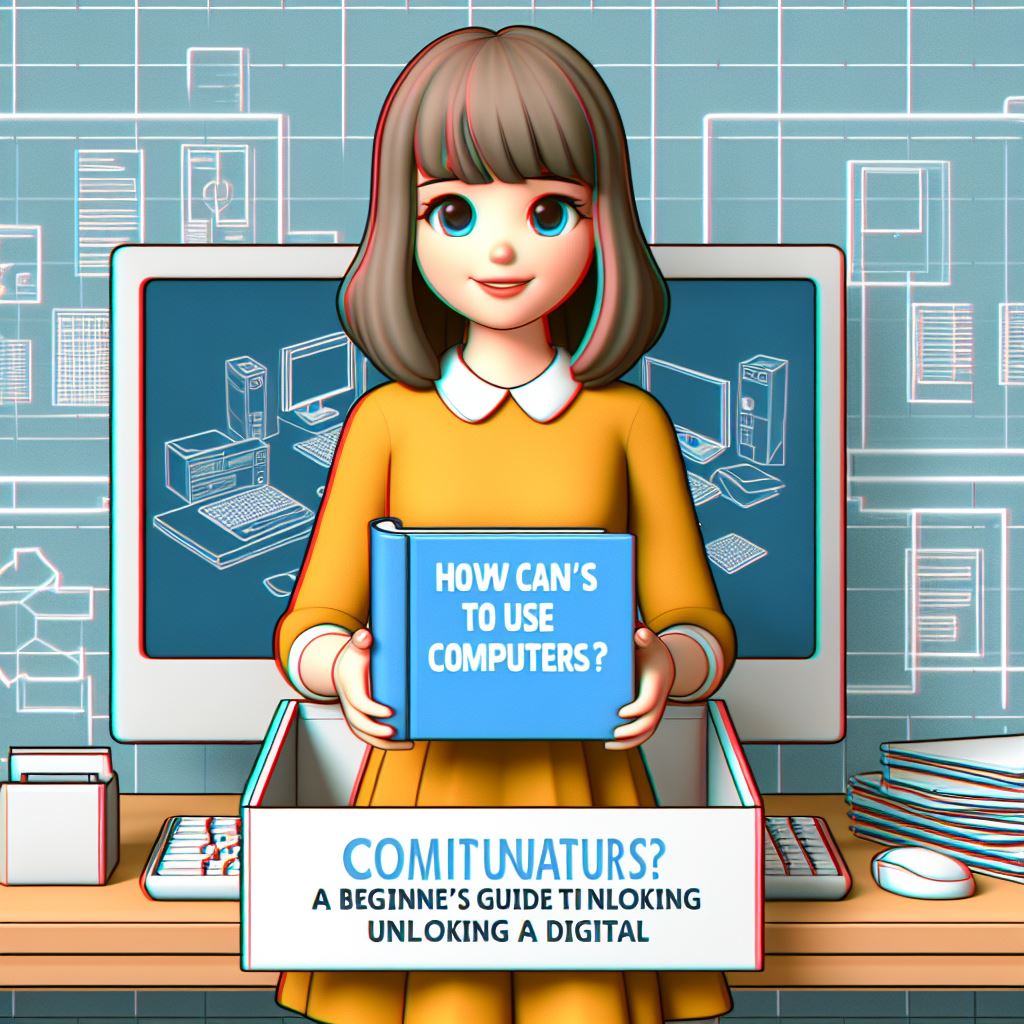
Tata Tigor EV: A Stylish and Sustainable Ride for the Eco-Conscious Drive | 0171 PCs have turned into an evident foundation of present day life. From minuscule cell phones to strong work areas, these machines pervade virtually every part of our reality. However, the vast array of applications and functions can feel overwhelming to people who are just starting out with computers. Dread not! This exhaustive aide will reveal the marvels of PCs, taking you from the outright fundamentals to investigating the thrilling potential they hold.
Demystifying the Machine: Hardware and Software Before we get into the world of applications, let’s look at what a computer is made of. The computer’s monitor, keyboard, mouse, and central processing unit (CPU), which is housed in the computer tower, are all examples of hardware. These parts cooperate flawlessly to perform assignments.
In contrast, software is the set of instructions that direct the hardware’s actions. It’s the imperceptible mind behind the machine. Working frameworks like Windows, macOS, or Chrome operating system deal with the general usefulness of the PC, while application programming like internet browsers, word processors, and games handle explicit undertakings.
Getting everything rolling: Starting Up and Basic Navigation Now that you are familiar with the fundamentals, let’s look at how to use your computer. To start the system, locate the power button and press it. You’ll be greeted by the desktop, a visual workspace with icons for applications and files, as soon as the screen lights up.
Your primary method of desktop navigation is the mouse. Skim it across the surface to move a pointer on the screen. An item is selected by clicking the left mouse button, and a context menu with additional options is opened by right-clicking. The console permits you to type text and use alternate route keys for quicker activities.
Getting to Know the Desktop: Exploring Files and Folders Your computer organizes data in a hierarchical manner using files and folders. Consider envelopes like file organizers and records as the archives put away inside them. Double tapping an envelope opens its items, uncovering more documents and subfolders. To effectively organize your information, you can create new folders.
Understanding record types is pivotal. Word processor-generated documents like Microsoft Word are typically saved as.docx files, whereas images may be saved as.jpg or.png files. Realizing the document type assists you with distinguishing the program expected to open it.

Exploring the Internet: The Force of the Web
The web, an immense organization of interconnected PCs, opens a universe of potential outcomes. To get to it, you’ll require an internet browser like Google Chrome, Mozilla Firefox, or Safari. These projects decipher web addresses (URLs) into outwardly engaging pages you can interface with.
Google and other search engines are your entry point to online information. Just sort your inquiry into the hunt bar and hit enter. The search engine looks all over the internet and finds relevant websites for you to look at. Whether you’re exploring a school project, shopping on the web, or interfacing with companions via virtual entertainment, the web offers something for everybody.
Correspondence and Joint effort: Remaining Associated
PCs have altered correspondence. Instant messaging platforms like WhatsApp and Facebook Messenger facilitate real-time conversations, whereas email lets you send and receive electronic messages immediately. Tools for video conferencing like Zoom and Google Meet make it possible to interact face-to-face even when people are miles apart.
Cooperation apparatuses further upgrade collaboration. Real-time project management is made possible by cloud storage services like Google Drive and Dropbox, which allow multiple users to work on documents simultaneously.
Releasing Innovativeness: Investigating Multimedia Applications Computers are used for more than just work; They are potent instruments for bringing out creativity. You can change and improve images using photo editing software like GIMP or Adobe Photoshop. You can make compelling videos with video editing software like Adobe Premiere Pro or Final Cut Pro.
Digital audio workstations (DAWs) like FL Studio and Ableton Live provide instruments for music composition, recording, and mixing for music enthusiasts. Computers give you the ability to realize your creative ideas, whether you’re a budding photographer, aspiring filmmaker, or music fanatic.
Learning and Diversion: A Universe of Information Readily available
The hunger for information can be extinguished by the tremendous instructive assets accessible on the web. Instructive sites, online courses, and computerized libraries offer an abundance of data on practically any point under the sun. Learning another dialect, hopefully looking out for a way to improve on history, or acquiring new abilities – PCs enable you to be a deep rooted student.
Computers provide a plethora of options for entertainment. Enjoy captivating video games, stream movies and television shows on platforms like Netflix or Hulu, or unwind with music streaming services like Spotify or Apple Music. From easygoing perusing to top to bottom investigation, PCs give interminable amusement prospects.
Past the Nuts and bolts: Exploring More Expensive Options As you become more at ease, you can explore more expensive options. To personalize your desktop experience, operating systems provide customization options. You can learn fundamental programming dialects like Python or Java to robotize assignments or even form straightforward projects.
Past the Nuts and bolts: Investigating Progressed Highlights (proceeded)
For power clients, PCs can be changed into imaginative forces to be reckoned with. Superior execution machines furnished with devoted designs cards and strong processors empower exercises like 3D displaying and activity, video altering with complex impacts, and high-loyalty gaming.
The world of open-source software provides access to an infinite number of options. Web servers, media editing tools, and even operating systems like Linux that are free and customizable are made for advanced users who enjoy tinkering with the hardware.
Security and safety: Protecting Yourself Online There are inherent dangers to using the internet. To guarantee your safety and security, follow these essential procedures:
- Solid Passwords: Make extraordinary and complex passwords for each internet based account. Secret key chiefs can help you create and store these safely.
- Programming Updates: Consistently update your working framework, internet browser, and other programming to fix security weaknesses. Malware and virus protection:* Introduce a respectable antivirus and hostile to malware program to safeguard your PC from malevolent programming.
- Phishing Scams: Avoid websites or emails that try to trick you into giving out personal information. Never click on dubious connections or connections.
- Information Backups: Back up your significant records consistently to an outside hard drive or distributed storage administration. Your data are shielded from accidental loss or hardware failure by this.

Investigating: When Things Go Wrong Even the most tech-savvy people occasionally run into problems. Here are some basic advice for fixing problems:
- Start over: A basic restart can frequently determine brief programming issues.
- Verify Connections: Make certain that all cables, particularly internet connections and power cords, are securely plugged in.
- Blunder Messages: Pay close attention to the screen’s error messages. They frequently give hints about the issue. Resources found online:* Search online for arrangements utilizing explicit catchphrases connected with the issue you’re confronting. Numerous client gatherings and investigating guides can help.
- Seek Professional Assistance: For complex issues past your usual range of familiarity, think about looking for proficient assistance from a PC expert.
The Fate of Registering: A Brief look into What Lies Ahead
The universe of PCs is continually developing. The following are some exciting upcoming trends:
Artificial Intelligence: Computer based intelligence is quickly changing different parts of registering, from voice collaborators like Siri and Alexa to facial acknowledgment programming and self-driving vehicles.
- Computing in the cloud:** The capacity to get to programming and information somewhat over the web, dispensing with the requirement for nearby establishments, is turning out to be progressively common.
- Computer generated Reality (VR) and Expanded Reality (AR): VR and AR advancements are ready to alter how we associate with PCs, making vivid and intuitive encounters.
Computers will continue to seamlessly integrate into our lives as technology advances, enabling us to work smarter, connect more effectively, and discover new creative and entertainment opportunities.
This guide has given a central comprehension of PCs, furnishing you with the information and certainty to explore this computerized world. Keep in mind, the way to dominating PCs is investigation and practice. Make sure to try, get clarification on some pressing issues, and embrace the learning venture. You have a chance to discover the vast potential of computers.

